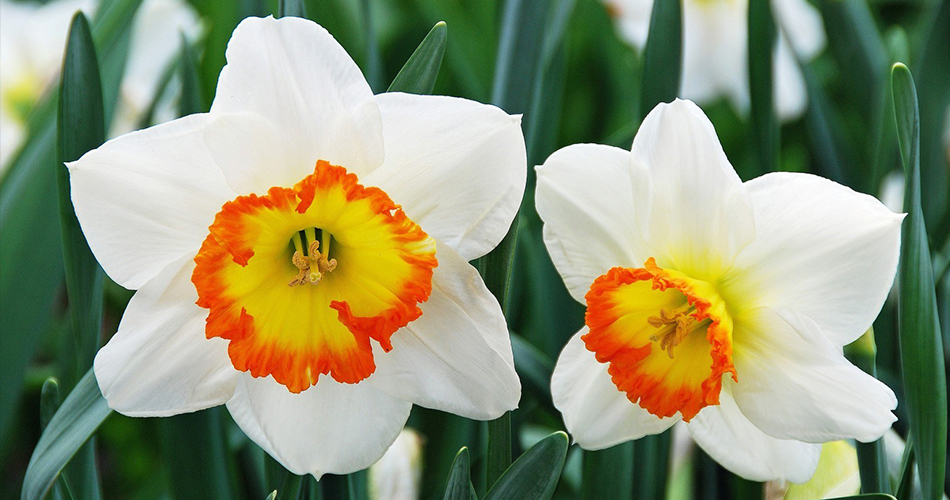Narcissus. A large genus of flowers of the amaryllis family, native to Asia and Europe, is called narcissus. Included are the daffodil, the poet’s narcissus, the jonquil, and others.
All the species produce bulbs, from which the long, narrow leaves arise. These usually appear with the blooms. The flowers are white to yellow, seldom green, solitary or in clusters at the top of the flower stalk. The flowers of some are very fragrant, while some have no odor. The most interesting feature of the flower botanically is the “corona” or “cup,” which arises in the throat of the bloom and may be long and tubular, or cup shaped, or reduced to a ring in some forms. Narcissus should be planted early—before the end of September. They should be at least three inches apart and covered with about four inches of well-drained soil of medium texture and fertility. The paper white narcissus may be planted in a dish filled with small stones or fiber. It must be well watered and kept in a cool place until well rooted. Then it can be placed in a sunny window. Many other varieties are grown in greenhouses. They are excellent house plants from Christmas through Easter. Some varieties become perennial outdoors and, if undisturbed, will multiply for many years.


Be First to Comment